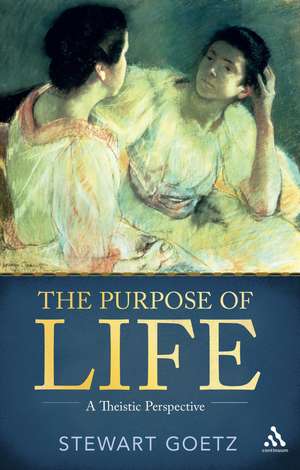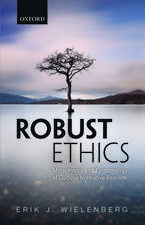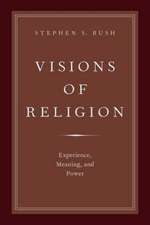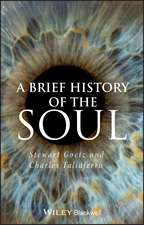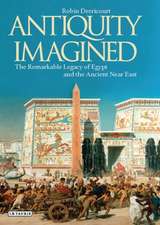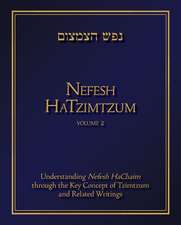The Purpose of Life: A Theistic Perspective
Autor Professor Stewart Goetzen Limba Engleză Paperback – 12 sep 2012
Preț: 170.95 lei
Preț vechi: 199.15 lei
-14% Nou
Puncte Express: 256
Preț estimativ în valută:
32.71€ • 33.95$ • 27.34£
32.71€ • 33.95$ • 27.34£
Carte tipărită la comandă
Livrare economică 17-31 martie
Preluare comenzi: 021 569.72.76
Specificații
ISBN-13: 9781441180827
ISBN-10: 1441180826
Pagini: 192
Dimensiuni: 138 x 216 x 14 mm
Greutate: 0.27 kg
Ediția:New.
Editura: Bloomsbury Publishing
Colecția Continuum
Locul publicării:New York, United States
ISBN-10: 1441180826
Pagini: 192
Dimensiuni: 138 x 216 x 14 mm
Greutate: 0.27 kg
Ediția:New.
Editura: Bloomsbury Publishing
Colecția Continuum
Locul publicării:New York, United States
Caracteristici
Shows how people with opposing views can reason with each other about life's important issues.
Notă biografică
Stewart Goetz is Ross Frederick Wicks Distinguished Professor in Philosophy and Religion at Ursinus College, PA, USA. He is co-author with Charles Taliaferro of Naturalism (2008) and A Brief History of the Soul (2011). He serves on the board of directors for Blackwell's Philosophy Compass.
Cuprins
Preface Chapter 1: Clarifying the Question What is the Meaning of Life? Clarifying Questions and Answers to Them Perfect Happiness A Plausible Understanding of "What is the meaning of life?" A Plausible Understanding of "What makes life meaningful?" Euthyphro's Objection A Plausible Understanding of "Is life meaningful?" This World, the Afterlife, and the Soul Conclusion AddendumChapter 2: Perfect Happiness and Its Atheist Critics Perfect Happiness Is Not the Meaning of Life Perfect Happiness: Setting the Bar too High "Why Should I Be Moral?" A Section Not Strictly Necessary "Why Should I Be Moral?" againChapter 3: Perfect Happiness and Its Theist Critics The Problem of Pleasure Pleasure Cannot Be Intrinsically Good: Religious Concerns Pleasure Cannot Be Intrinsically Good: Philosophical Concerns Is Pleasure Present in Everything We Enjoy? ConclusionChapter 4: Purposeful Explanation and Naturalism A Brief Overview Looking Backward versus Looking Forward The Nature of Purposeful Explanation Naturalism The Causal Closure Principle Science Is Not the Problem Survival or Pleasure: What Explains What? Evolution versus Creation AddendumChapter 5: The Problem of Evil Skeptical Theism, the Purpose of Life, and the Problem of Evil Choice and Life Plans Life Plans and Perfect Happiness A Theodicy The Plausibility of My Theodicy Not So Fast! A Skeptical Theist Turned Theodicist Justice as an Organic Unity Tying Together Some Loose Ends The Experience of Evil by Beasts AddendumChapter 6: Conclusion BibliographyIndex
Recenzii
Stewart Goetz's remarkable book, The Purpose of Life: A Theistic Perspective, provides a rigorous analytic treatment of a theistic theory of the meaning of life that addresses the best arguments of its nontheistic detractors. Beyond that self-described goal, Goetz also mounts a direct assault on naturalism, defends his specific understanding of life's meaning against the objections of his theistic friends, and presents a kind of free will theodicy. ... [P]acked full of insights and arguments that would benefit a readership that ranges from advanced undergraduates to the most learned theologian or philosopher.
The Purpose of Life: A Theistic Perspective makes an important contribution to the growing discussion within analytic philosophy over life's meaning. Goetz covers a lot of interesting philosophical territory to make his case-value theory, naturalism, reductionism, the problem of evil, even heaven and hell. His choice of interlocutors is equally interesting: St. Augustine, Bertrand Russell, C.S. Lewis, Daniel Dennett, Thomas Nagel and Alvin Plantinga to name a few. Those interested in a monograph-length discussion of life's meaning from a theistic perspective will want to read this book. I hope that Goetz's contribution motivates others to work further (or for the first time) in this area.
A very stimulating and readable defence of a theistic hedonistic understanding of happiness as the purpose of life; it should be of interest to philosophers of religion and value theorists at every level, from the undergraduate upwards.
The Purpose of Life: A Theistic Perspective makes an important contribution to the growing discussion within analytic philosophy over life's meaning. Goetz covers a lot of interesting philosophical territory to make his case-value theory, naturalism, reductionism, the problem of evil, even heaven and hell. His choice of interlocutors is equally interesting: St. Augustine, Bertrand Russell, C.S. Lewis, Daniel Dennett, Thomas Nagel and Alvin Plantinga to name a few. Those interested in a monograph-length discussion of life's meaning from a theistic perspective will want to read this book. I hope that Goetz's contribution motivates others to work further (or for the first time) in this area.
A very stimulating and readable defence of a theistic hedonistic understanding of happiness as the purpose of life; it should be of interest to philosophers of religion and value theorists at every level, from the undergraduate upwards.
Descriere
An accessible exploration of what philosophers have had to say about the meaning of life.
